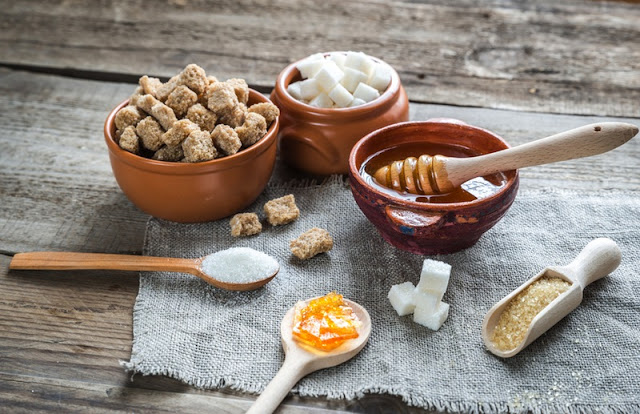

| Online: | |
| Visits: | |
| Stories: |
Nature’s Best Alternative Sweeteners
by James Colquhoun
Food Matters
Sugar itself has been linked with numerous health problems ranging from obesity to tooth decay. In the US, Dr Robert Lustig (presenter of Sugar: The Bitter Truth) has called for a tax on sugar similar to those placed on alcohol and tobacco because of what he calls its ‘toxic nature’. In the UK, the love affair with the white stuff began back in the 16th century when it appeared on our shores for the first time following the first wave of European exploration. Back then sugar was a luxury item, enjoyed only by the elite.
Today, it is everywhere with the average Brit consuming a shocking 1.25lbs a sugar a week. Across the Atlantic, sugar consumption is even higher. Americans consume, on average, 22 teaspoons of sugar a day – double the recommended daily amount.
6 Natural Sugar Alternatives
1. Stevia
A herb native to South American, stevia is 300 times sweeter than sugar. It has been used as a sweetener for centuries in South America, and in Japan, makes up 41 percent of the sweetener market. So widespread is its use before Coca-Cola decided to ‘standardise’ the recipe, stevia was used in Japanese Diet Coke. The herb recently ran into trouble in the US with the Food and Drug Administration over the label ‘sweetener’ but has rebounded to become the second most popular sugar alternative in the US under the term ‘dietary supplement’. Stevia has no calories and no glycemic impact making it suitable for diabetics as well as weight watchers and eco-warriors. It can be grown at home, although turning it from herb into a granular product isn’t an easy DIY project.
Read more »
Every Day is Earth Day
Source: http://www.riseearth.com/2016/01/natures-best-alternative-sweeteners.html




